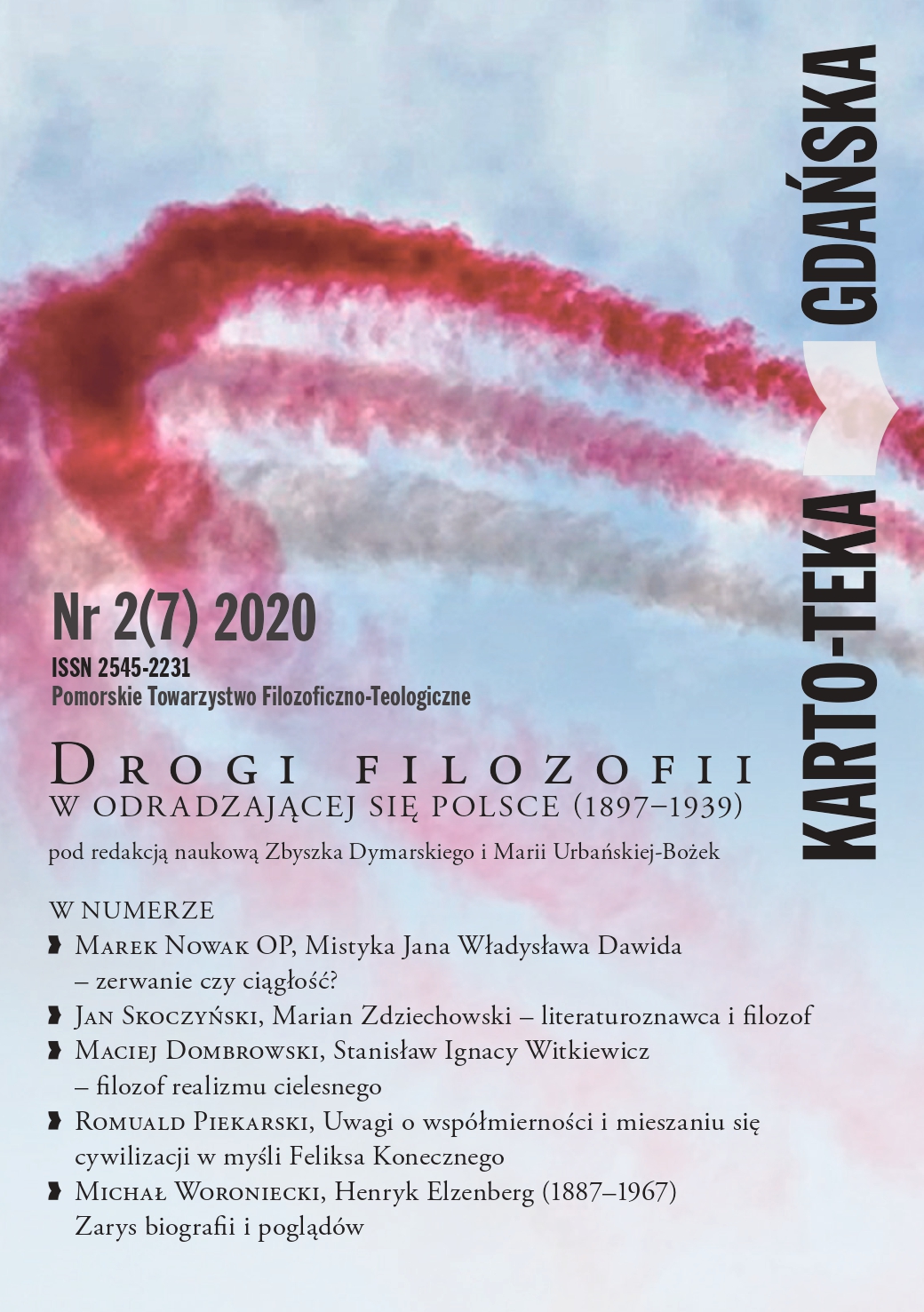The Power and Weakness of Thinking part 1
Keywords:
Rudolf Steiner, philosophy, freedom, anthroposophy, thinkingAbstract
This text is an editorial elaboration of the typescript about Rudolf Steiner’s Philsophy of Freedom. Prokopiuk discusses the first part of Philsophy of Freedom, which is titled as “Knowledge about Freedom”. Steiner connected the issue of human freedom with epistemological issue of his cognition limits. He criticized agnostic philosophy – specially Immanuel Kant’s works. He also refered to the achievements of German philosophical idealism (Johann Gottlieb Fichte, Georg Wilhelm Hegel, Arthur Schopenhauer) and found his own epistemological gaze. By him, the base of human cognition and freedom, depends on the ability to perceiving own thoughts. Prokopiuk also considers the issue of power and weakness of thinking in works written by other authors: George Steiner, Erich Voeglin and Lev Shestov.
Downloads
References
Bierdiajew M., Filozofia wolności, tłum. E. Matuszczyk, Wydawnictwo Otrhdruk, Białystok 1995.
Fichte J. G., Powołanie człowieka, tłum. A. Zieleńczyk, Wydawnictwo „Antyk”, Kęty 2002.
Fichte J. G., Sämmtliche Werke, t. 1, Verlag von Veit und Comp, Berlin 1845.
Goethe J.W., Faust, cz. 1, tłum. A. Sandauer, Wydawnictwo Literackie, Kraków 1987.
Lange F. A., Geschichte des Materialismus und Kritik seiner Bedeutung in der Gegenwart, t. 1 i 2, Aufl. Baedeker, Iserlohn 1873 i 1875.
Ruyer R., Nowa gnoza, tłum. M. Goszczyńska, „Literatura na świecie” 1982, nr 3–4 (128–129).
Steiner G., Dziesięć (możliwych) przyczyn smutku myśli, tłum. O. i W. Kubińscy, słowo/obraz terytoria, Gdańsk 2007.
Steiner R., Allgemeing Menchenkunde als Grundlage der Pedagogik, Rudolf Steiner-Nachlaftverwaltung, Dornach/Schweiz 1960.
Steiner R., Anthroposophie – ihre Erkenntniswurzlen und Lebenfrüchte. Mit einer Einleitung über den Agnostizismus als Verderber echten Menschentums, Freies Geistesleben, Stuttgart 1962.
Steiner R, Anthroposophie Leitsätze, Philosophisch-Anthroposophischer Verl. am Goetheanum, Dornach 1925.
Steiner R., Anthroposophische Leitsätze. Der Erkenntnisweg der Anthroposophie Das Michael-Mysterium, Erstveröffentlichung in der Wochenschrift „Was in der anthroposophischen Gesellschaft vorgeht”, 1924/25, online:<http://anthroposophie.byu.edu/schriften/026.pdf>; [dostęp: 23.12.2020].
Steiner R., Die Ratsel der Philosophie, Schweiz: Steiner Verlag, Dornach 1974.
Steiner R., Filozofia wolności. Główny zapis nowoczesnego światopoglądu. Wyniki obserwacji w sferze duszy dokonanych metodą przyrodoznawczą, tłum. J. Prokopiuk, Wydawnictwo Spektrum, Warszawa 2000.
Szestow L., Ateny i Jerozolima, tłum. C. Wodziński, Wydawnictwo Znak, Kraków 1993.
Szestow L., Umozrijenije i otkrowienie. Religioznaja filosofija Władimira Sołowiowa i drugije statii, YMCA-Press, Paryż 1964.
Voeglin E., The eclipse of reality, [w:] Phenomenology and Social Reality. Essays in Memory of Alfred Schutz, red. M. Natanson, Springer, Dordrecht 1970.
Wodziński C., Ateny, Jerozolima, Rzym…, [w:] L. Szestow, Ateny i Jerozolima, tłum. C. Wodziński, Wydawnictwo Znak, Kraków 1993.

 Academic Scientific Journals
Academic Scientific Journals

